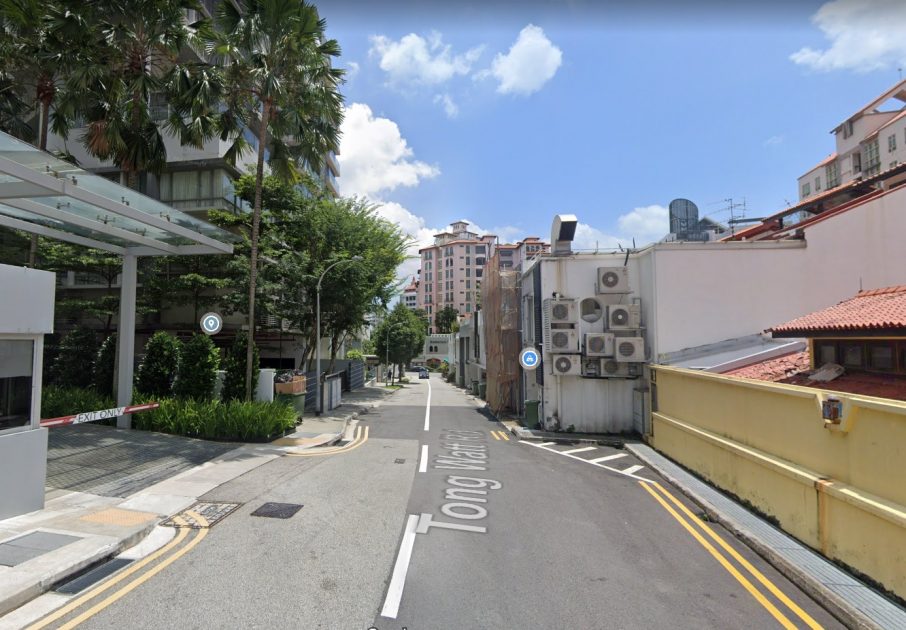In May 2022, there was an appeal over a civil lawsuit among family members regarding the sale proceeds of a Pacific Mansion Apartment. The dispute stemmed from who were the rightful beneficiaries of the sale based on who contributed to the purchase and loan repayments, including (or excluding) who paid for its stamp duty.
Here’s a quick overview of the suit:
- A family with seven children once lived at a rented shophouse at Mohamed Sultan Road.
- In December 1987, they started a leather and textile business at Westin Plaza Hotel, which was ACRA-registered by four of them – the youngest daughter, the second eldest son, the youngest son and the father. There was however no written partnership agreement. The business was terminated in 1995.

- In mid-1988, the family bought a River Valley apartment at Tong Watt Road for S$270k. They took a 5-year loan of S$150k under the names of their parents and the youngest son, with the remainder being paid in cash. By the end of 1988, the parents and their children who weren’t married (second youngest and youngest daughters, youngest son) moved there.
- After the mother passed in 1996, the legal title of the Valley Apartment was split into the following: father (50%), youngest son (one-third), second eldest son (one-twelfth) and second eldest daughter (one-twelfth).
- In December 2005, the Valley Apartment was sold for S$898,403.18, which was paid out to the father, youngest son, second eldest son and second eldest daughter based on their shares.
- In early 2006, the youngest daughter met with her father and siblings, contesting the inclusion of her brother’s name – the youngest son (who was absent in that meeting) – in the legal title. The father allegedly told his youngest daughter (in Teochew) – with her siblings as witnesses – something along the lines of: “there is a name but it is useless. The money isn’t his. In future, it will all be yours”. The daughter understood this to mean that her brother’s name was useless on the register because the money was not his and in the future, it would be all hers.

- Around March 2006, a Pacific Mansion Apartment was purchased for S$670k in the joint names of the father and the youngest son. It was mostly paid for from the sale proceeds of the Valley Apartment, save for S$26,300, which came from the youngest son’s CPF account (S$17,700 paid for the stamp duty).
- In March 2018, GuocoLand and Hong Leong group bought the Pacific Mansion site for S$980m – reportedly the second-biggest ever en bloc deal after Farrer Court. For the family, their Pacific Mansion Apartment was sold for S$3.269m. That same year, the youngest son sought his siblings’ consent to be named their father’s sole deputy (but was denied).

- In February 2019, the father was certified to have lost mental capacity. In July of that same year, the youngest son applied to the court to be appointed their father’s sole deputy to manage his property and affairs. His application included a clause granting him authority to collect any sums payable to their father from the collective sale and to select and purchase a new private residential property as joint tenants with his father.
- Then in October 2019, the youngest daughter commenced proceedings against her brother and father, claiming that the proceeds from the Pacific Mansion Apartment sale were hers. Her defence was that she was the legal sole owner of the leather business and that the Valley Apartment had been paid using proceeds from that business, which subsequently financed the Pacific Mansion Apartment.
In his original case, the judge examined the family’s financial situation before they started the leather business and found little evidence to show that the father had sufficient cash from his prior business to pay for the Valley Apartment. So the court ruled that the apartment was mostly financed by the leather business.
The judge also found that the business was founded by the youngest daughter as a sole proprietor and that her father had only acted as an intermediary to help her secure a loan. Her siblings, including her youngest brother, were merely nominee partners in the ACRA list, so none of the business proceeds was split among them.
As the Pacific Mansion Apartment was paid with money held in trust (after the sale of the Valley Apartment, which was financed by the leather business), 96.07% of its sale proceeds were awarded to the youngest daughter. On appeal, the decision was upheld.
However, as her youngest brother paid for its stamp duty with his CPF (S$17,700), she had to reimburse him the amount with accrued interest (totalling S$23,299.65).
This raises an interesting question of law, where monetary contributions toward ancillary property costs (eg. stamp duty, solicitors’ fees and agents’ fees) may be excluded when determining a party’s beneficial shares in a resulting trust.
Note that in Australia and Hong Kong, some courts have included stamp duty for the purposes of determining a party’s respective share under a resulting trust.
With stamp duty being a major cost when it comes to buying property in Singapore, this case would thus set an interesting precedent (or reference) for future disputes to come.
–
–
Curious about en bloc sale disputes? Let us know in the comments section below or on our Facebook post.
If you found this article helpful, 99.co recommends Pacific Mansion sold for S$980 million in second-largest ever en bloc deal and Favouritism in estate wills: do they still exist?
The post Family dispute concerning Pacific Mansion en bloc apartment sale excludes stamp duty from beneficiary’s share appeared first on 99.co.





















